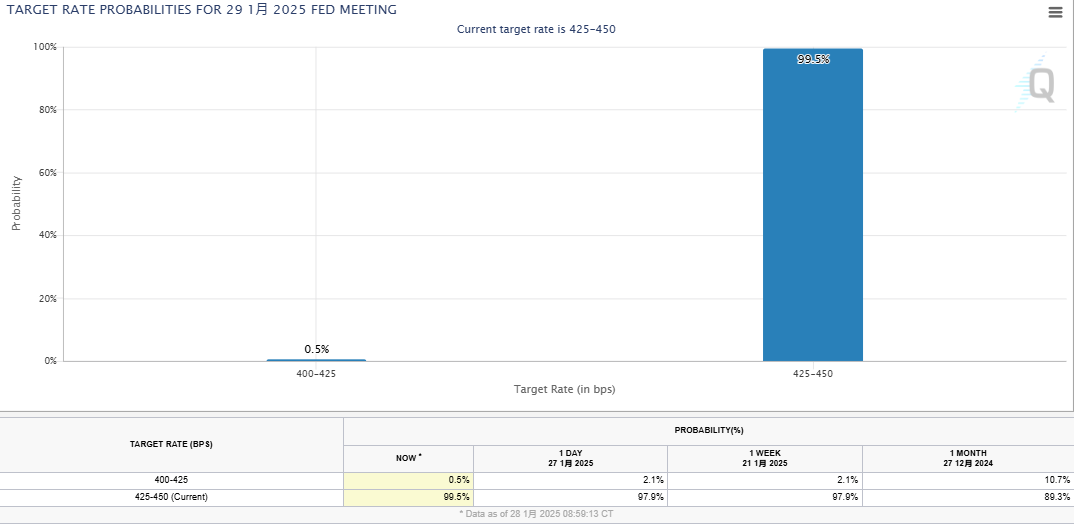The US Federal Reserve (Fed) is set to announce its first interest rate decision for 2025 in the early hours of Taiwan time on January 30. Although President Trump stated at the World Economic Forum (WEF) in Davos, Switzerland on January 24 that he will demand the Fed to continue cutting rates, the market still almost unanimously believes that the Fed will maintain the interest rate unchanged this month.

Fed Mouthpiece: Tariffs are the Key Factor Affecting the Fed's Interest Rate Decision
Against this backdrop, Wall Street journalist Nick Timiraos, known as the "Fed Mouthpiece", also released a hint in an article in The Wall Street Journal yesterday (28th), suggesting that the Fed may not cut interest rates this month.
Timiraos said that whether the Fed will continue to cut interest rates and when it will do so largely depends on the outlook for inflation in the US, and this year's inflation outlook is largely dependent on US President Trump's tariff policy:
Tariffs are still a key variable in the Fed's interest rate decisions, as people are concerned about how tariffs will affect corporate and consumer expectations of future inflation progress.
This Time May Be Different
Timiraos further pointed out that during Trump's previous term, Trump also implemented his favorite tariff war, but the Fed still took interest rate cuts at that time. However, going back to the present, Timiraos believes that the Fed and its chairman Powell may react differently this time, because the US has just experienced a period of severe inflation. Timiraos cited the view of Steven Kamin from the American Enterprise Institute:
Price setters and price payers are more able to adapt to price pressures than they were in 2018.
The Fed will indeed be more inclined to oppose tariff hikes in this cycle than the last time.
The Fed will also not easily change interest rates before the tariff policy is officially implemented, so it may not react abnormally at the moment.
Timiraos further pointed out that even though Trump imposed tariffs on foreign countries during his previous term, people's expectations of future inflation were still very low, but with the high inflation caused by the COVID-19 pandemic, people have become alert to inflation, and they will raise doubts:
Will the Fed allow prices to rise? Rising expectations of future inflation may continue to drive up prices.







